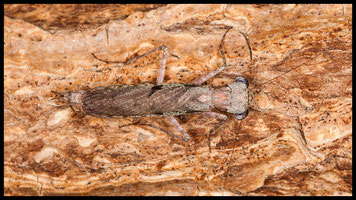- Home
- Mantodea
- Systematik
- Acanthopidae
- Amelidae
- Amorphoscelidae
- Angelidae
- Chaeessetidae
- Chroicopteridae
- Coptopterygidae
- Dactylopterygidae
- Deroplatyidae
- Empusidae
- Epaphroditidae
- Eremiaphilidae
- Galinthiadidae
- Gonypetidae
- Haaniidae
- Hoplocoryphidae
- Hymenopodidae
- Ambivia popa
- Anasigerpes bifasciata
- Ceratocrania macra
- Chlidonoptera lestoni
- Chloroharpax modesta
- Creobroter pictipennis
- Ephestiasula rogenhoferi
- Harpagomantis tricolor
- Helvia cardinalis
- Hymenopus coronatus
- Majangella moultoni
- Panurgica fratercula
- Parablepharis kuhlii asiatica
- Phyllocrania paradoxa
- Phyllothelys cornutus
- Pseudocreobotra wahlbergii
- Psychomantis malayensis
- Sibylla pretiosa
- Theopropus sp.
- Leptomantellidae
- Liturgusidae
- Majangidae
- Mantidae
- Mantoididae
- Metallyticidae
- Miomantidae
- Nanomantidae
- Photinaidae
- Rivetinidae
- Thespidae
- Toxoderidae
- Mantodea A bis Z
- Fotogalerie
- Abzugeben/for sale
- IGM-Nummern
- Links
- Blog
Amorphoscelis annulicornis
Stal, 1871
| Klasse: | Insecta |
| Ordnung: | Mantodea |
| Familie: | Amorphoscalidae |
| Unterfamilie: | Amorphoscelinae |
| Gattung: | Amorphoscelis |
| Art: | annulicornis |
| Verbreitung: |
Sri Lanka, Indien, Nepal Malayische Halbinsel |
| Lebensraum: | Savannen und Wälder |
| IGM-Nr.: | 318 (Indien) |
| Temperatur: |
Tag 27-32°C Nacht 22-25°C |
| rLf.: | 35-50% |
| Größe: |
Männchen bis 2cm Weibchen bis 2,5cm |
| Nahrung: | Drosophila, Ofenfischchen |
Besonderheiten:
Amorphoscelis annulicornis ist eine klein bleibende Gottesanbeterin aus der Familie der Amorphoscelidae, die bevorzugt an Baumrinden lebt. Die Larven dieser Art sind dafür bekannt, auffällig mit ihrem Abdomen zu "wedeln", wenn sie auf Beutejagd gehen. In ihrer natürlichen Umgebung halten sich die Tiere meist auf Ästen und Stämmen unterschiedlicher Dicke auf, wo sie gezielt nach Ameisen und anderen kleinen Insekten suchen. Bei drohender Gefahr flüchten sie blitzschnell auf die der Bedrohung abgewandte Seite des Astes oder Stammes.
Die Tiere sind sehr empfindlich gegenüber Futtermangel und können bereits nach wenigen Tagen ohne Nahrung sterben.
Studioaufnahmen
| Class: | Insecta |
| Order: | Mantodea |
| Family: | Amorphoscelidae |
| Subfamily: | Amorphoscelinae |
| Genus: | Amorphoscelis |
| Species: | annulicornis |
| Distribution: |
Sri Lanka, India, Nepal, Malay Peninsula |
| Habitat: | Savannas to forests |
| IGM-Nr.: | 318 (India) |
| Temperature: |
Day 27-32°C Night 22-25°C |
| rH.: | 35-50% |
| Size: |
males up to 2cm females up to 2,5cm |
| Diet: | Drosophila, firebrats |
Characteristics:
Amorphoscelis annulicornis is a small mantis species from the family Amorphoscelidae that predominantly lives on tree bark. The larvae of this species are known for their distinctive "wagging" of the abdomen when hunting for prey. In their natural habitat, these mantises typically dwell on branches and trunks of varying thickness, where they actively search for ants and other small insects. When threatened, they swiftly flee to the side of the branch or trunk opposite the perceived danger.
These mantises are highly sensitive to food shortages and can perish quickly if deprived of food for just a few days.








